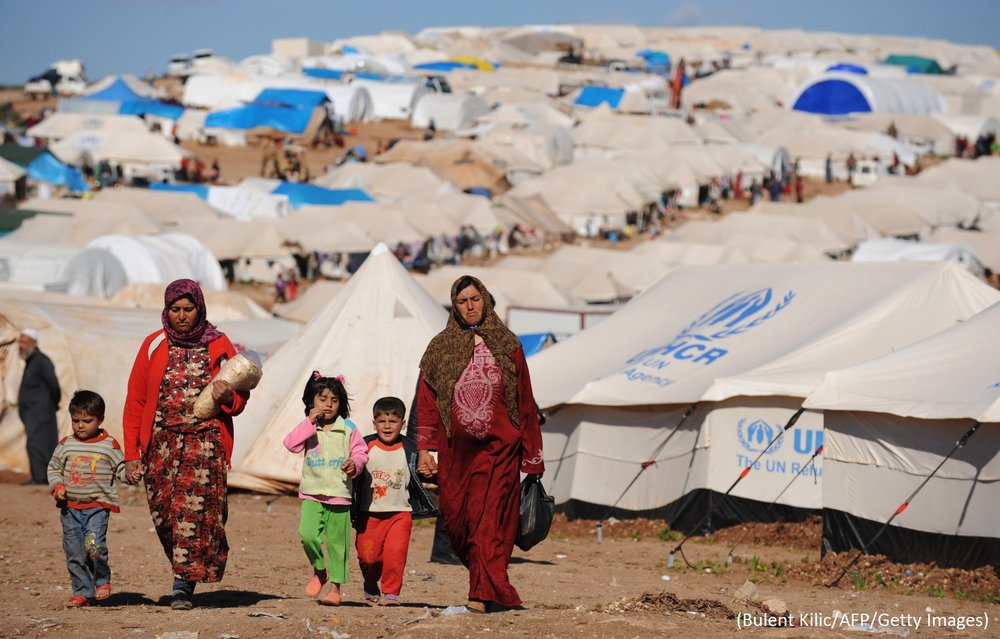Why are only poor countries taking refugees?

It has now been almost two years since the world was confronted with the harrowing image of drowned Syrian toddler Aylan Kurdi washed up on a Turkish beach.
At that moment, there was an overwhelming sense of “Enough is enough” — a cry of anguish over the misery endured and lives snuffed out as refugees seek safety. In the time since then, thousands more have lost their lives while trying to traverse the Mediterranean, with 2016 becoming the deadliest year on record. Globally, refugees now number more than 22 million.
Yet the sad truth is that for many, especially in the prosperous Global North, refugees have slipped from the minds of citizens. When they do appear, it’s often because of irresponsible political rhetoric designed to stoke fears rather than foster genuine debate. Citizens of countries witnessing an influx of refugees sometimes feel overwhelmed, concerned that borders are no longer secure and that their jobs and way of life are under threat. Quasi-populist politicians have all too often exploited these fears — when what is needed is responsible leadership shaped by facts, principles and values.
But around the world, the plight of the uprooted is also driving thousands of acts of solidarity, from the Ugandan farmers sharing their land with refugees fleeing famine and violence in South Sudan to the Canadian communities offering a lifeline through sponsored resettlement programs to the teachers, employers, athletes, faith groups and volunteers working to foster the inclusion of refugees in the social, economic and cultural lives of their communities.
World Refugee Day
It is their voices — the voices of compassion and humanity that often struggle to make themselves heard — that should guide our call for action this World Refugee Day.
Today is an opportunity to appeal to what Abraham Lincoln called the “better angels of our nature.” We need leaders to act responsibly and commit to cooperating and sharing the burden, so the world can manage refugees with dignity and respect their human rights.
At the moment, the balance is skewed. Most pressure has fallen on neighboring states. Tiny Lebanon, for example, hosts more refugees (1,462,926) than the total number of asylum seekers that arrived in the European Union in 2015, when numbers peaked (1,255,600). This is not an isolated case. Eighty-four percent of refugees are in developing countries, while the countries that account for 57% of global GDP host fewer than 9% of all refugees and asylum seekers.
One of the most important forms of burden-sharing is resettlement, through which refugees find security and stability in a third country. The United Nations’ refugee agency, UNHCR, estimates that 1.2 million especially vulnerable refugees are in need of resettlement in 2017, but places are expected to be available for fewer than one in ten — a drop of around 43% from 2016.
Traditionally, the United States has been UNHCR’s largest resettlement partner, but the Executive Order issued by President Donald Trump in January has sought to more than halve the number of refugees that can be settled in the U.S. this year.
Humanitarian principles
Curtailing the U.S. resettlement program — the last lifeline to so many — is deeply regrettable. It undermines the great values of a nation that has always championed humanitarian principles and human rights.
But as long as an isolationist mood prevails in Washington DC, other powers have an even greater responsibility to uphold the values and mechanisms of refugee protection — especially the European Union, given the continuing tragic deaths on the shores and waters of the Mediterranean.
In 2015, many European citizens showed great acts of solidarity and humanity to the influx of refugees. Some European governments took courageous steps, particularly Germany. Yet certain other European states — and in certain respects, the institutions of the European Union — have so far seemed more interested in closing borders and deflecting responsibility elsewhere than championing compassion. Tens of thousands of refugees remain stranded in Greece, some in truly pitiful conditions. Meanwhile, a 2015 EU agreement to share responsibility by relocating refugees within Europe remains largely unimplemented.
No one underestimates the challenges of devising a fair and robust shared refugee policy or of balancing humanitarian imperatives with fraught domestic political agendas. Nevertheless, there is a clear need for moral leadership from the EU, an institution created amidst the rubble of post-war Europe with solidarity at its core.
The current negotiations on an EU Resettlement Framework present an opportunity for precisely this leadership. It is imperative that this framework increases the quantity and quality of resettlement places available, without making this conditional upon third country cooperation with the EU on migration controls. The March 2016 EU-Turkey deal, for example, offered resettlement of Syrian refugees from Turkey, but only in exchange for the forcible return of those arriving on Greek shores. The lives of the world’s most vulnerable refugees cannot be allowed to become a political bargaining chip.
In his poem “No Man Is An Island,” the English poet John Donne wrote that “Any man’s death diminishes me, because I am involved in mankind.” His words ring true today, some four centuries later. They should guide our global efforts to treat refugees with the respect and dignity they deserve.
(Source: Time)
